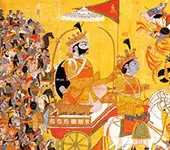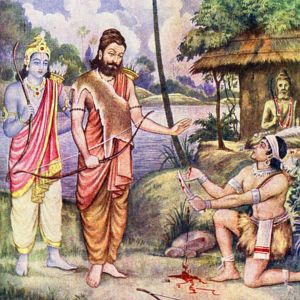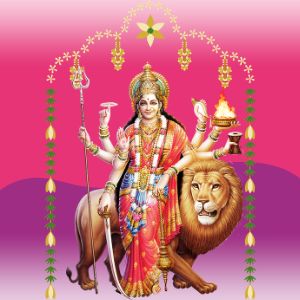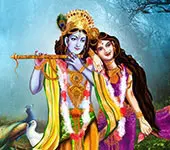This audio tells you about - 1. How Srimad Bhagavata is different from other Puranas 2. Why the Rishis think that Suta must know some secrets about Puranas 3. The concern of the Rishis about the common man.
What are the nine forms of bhakti also called Navadha bhakti?
According to Prahlada, the nine forms of bhakti are - 1. Shravana - listening to Bhagawan's glory ( eg. Parikshit ) 2. Keertana - singing his glory ( eg. Shukadeva ) 3. Smarana - remembering him constantly ( eg. Prahlada ) 4. Padasevana - serving his lotus feet ( eg. Lakshmi ) 5. Archana - physical worship (eg. Prithu ) 6. Vandana - offering namaskaras ( eg. Akrura ) 7. Dasya - to consider yourself as Bhagawan's servant (eg. Hanuman ) 8. Sakhya - to consider him as your friend ( eg. Arjuna ) 9. Atmanivedana - complete surrender to Bhagawan ( eg. King Bali ).
According to the Ramcharitmanas, what are the nine forms of bhakti?
According to Ramcharitmanas, the nine forms of bhakti are - 1. Being in the company of devotees 2. Interest in the stories of Bhagawan 3. Selfless service of your Guru 4. Singing the glories of Bhagawan 5. Firm faith and chanting of his mantras 6. Control over the mind and senses, good behavior, developing dispassion, and following the conduct of noble people 7. To look at the world as a manifestation of Bhagawan and consider the saints even greater than him 8. Being content with whatever you have and not finding fault with others even in dreams 9. Simplicity, straightforward dealings, to have Bhagawan in your heart, and neither getting excited nor sad.
Quiz
Who is Damodara ?Transcript
(Click here to read more)
Do you know why Srimad Bhagavata stands apart from the other Puranas? There are two major differences. Bhagavata contains the essence of all the other Puranas. If you listen to Bhagavata, you will understand the essence of all the other Puranas. Second point, Bhagavata has its emphasis on bhakti, the path of bhakti. It doesn’t mean that there is no bhakti in the other Puranas. They are all about divinity. How can bhakti be not there? But Bhagavata is exclusively the....
Transcript
(Click here)
Do you know why Srimad Bhagavata stands apart from the other Puranas?
There are two major differences.
Bhagavata contains the essence of all the other Puranas.
If you listen to Bhagavata, you will understand the essence of all the other Puranas.
Second point, Bhagavata has its emphasis on bhakti, the path of bhakti.
It doesn’t mean that there is no bhakti in the other Puranas.
They are all about divinity.
How can bhakti be not there?
But Bhagavata is exclusively the bhakti perspective.
Whatever Sage Vyasa had written before as Puranas, all that, Vyasa again looked at all of them from the perspective of bhakti and Bhagavata came out.
A conversation is happening between Shaunaka Maharshi and Suta at Naimisharanya, towards the end of Dwaparayuga.
As you know, Rishis are performing a thousand-year-long yaga there.
And Suta has been narrating all the Puranas to them.
At the end, Shaunaka Maharshi asks Suta for the essence of all these.
Because Kaliyuga is approaching.
Nobody will have the patience to listen to everything and understand.
It took the Rishis a thousand years to listen to everything that we have as Puranas.
How will it be possible in Kaliyuga for ordinary mortals?
The longevity is also limited.
Interest will not be there.
But still, something is required for their emancipation.
Shaunaka Maharshi is pre-empting many of the objections that Suta could raise about this demand.
This is a peculiar demand.
Maharshi is saying: you may say, what essence?
There is no essence.
I am not aware of any essence as such.
Whatever I knew, I have told you.
Whatever I have learned from my guru, I have told you.
But we know something; you are the most favorite disciple of Vyasa.
There are some secrets which the guru will teach only to his most favorite and trusted disciple.
It is not possible that Vyasa did not know the essence of all these.
So he must have definitely told this to you.
Not only Vyasa, you are the favorite of many Maharishis.
They must have also shared some secrets with you.
And you are yourself one of the most intelligent and sharp persons on earth.
Having known so much, the knowledge that you could narrate continuously for thousand years, you must have come to your own conclusions and inferences.
See, Rishis are not worried about themselves.
Naimisharanya is safe from the onslaught of Kali.
Brahma has given them that boon.
Kaliyuga will not affect them as long as they are in Naimisharanya.
They are worried about the common man.
In Kaliyuga the level of intelligence of man is going to drop drastically.
Their sense of discretion, the ability to distinguish between right and wrong, good and bad will drop drastically.
They will become cruel by nature.
We are seeing all these.
Circumstances will make them cruel by nature.
The qualities called cruelty-I don't whether we can call them qualities-but cruelty, deceit, selfishness which were earlier present in Asuras and Rakshasas alone, will develop more and more in men.
Nobody will be bothered about the quest for the supreme truth.
Their concern will only be: how to give more and more pleasure to my body?
How to make more and more money?
How to keep my family comfortable?
This will be their only concern.
They will not have enough time for sadbuddhi to dawn on them.
They will be short-lived.
By the time they realize the fallacies of what they have done throughout their life, they will be gone sixty, seventy, eighty years, they will be gone.
They will not bother to know the essence of good living and benefit by living accordingly.
We are worried about them, says Shaunaka Maharshi.
We can't abandon them.
They are our children.
Shastra is a huge ocean.
You have to churn it and give us the butter.
Rishis are asking Suta.
The quality of the butter will depend on the skill and mastery of the person who is doing the churning.
We know you are the best.
The best person for this job.
That’s why we want this from you.
Recommended for you
How Chyavana Maharshi got his name
 Click here to know more..
Click here to know more..
Ekalavya: The Unsung Hero of the Mahabharata

Ekalavya's tale is one of determination, and sacrifice. Learn about this legendary character from the Mahabharata....
Click here to know more..Nava Durga Stuti

वृषारूढा सैषा हिमगिरिसुता शक्तिसरिता त्रिशूलं हस्तेऽस�....
Click here to know more..
English Topics
Bhagavatam
Click on any topic to open
- 65 Bhagavan's External Deeds
- 64 Is the Body Yours?
- 63 What's So Great About The Stories Of Sri Krishna
- 62 What To Do If You Just Don't Have Interest In Bhagawan
- 61 Which God Should I Worship?
- 60 How To Observe Dharma Properly
- 59 Devotee's progress
- 58 Which Guruji Can You Trust
- 57 Bhagawan Is Beyond Human Comprehension
- 56 The Missing Piece: Why Your Spiritual Practices Are Not Working
Please wait while the audio list loads..
30
Ganapathy
Shiva
Hanuman
Devi
Vishnu Sahasranama
Mahabharatam
Practical Wisdom
Yoga Vasishta
Vedas
Rituals
Rare Topics
Devi Mahatmyam
Glory of Venkatesha
Shani Mahatmya
Story of Sri Yantra
Rudram Explained
Atharva Sheersha
Sri Suktam
Kathopanishad
Ramayana
Mystique
Mantra Shastra
Bharat Matha
Bhagavatam
Astrology
Temples
Spiritual books
Purana Stories
Festivals
Sages and Saints
